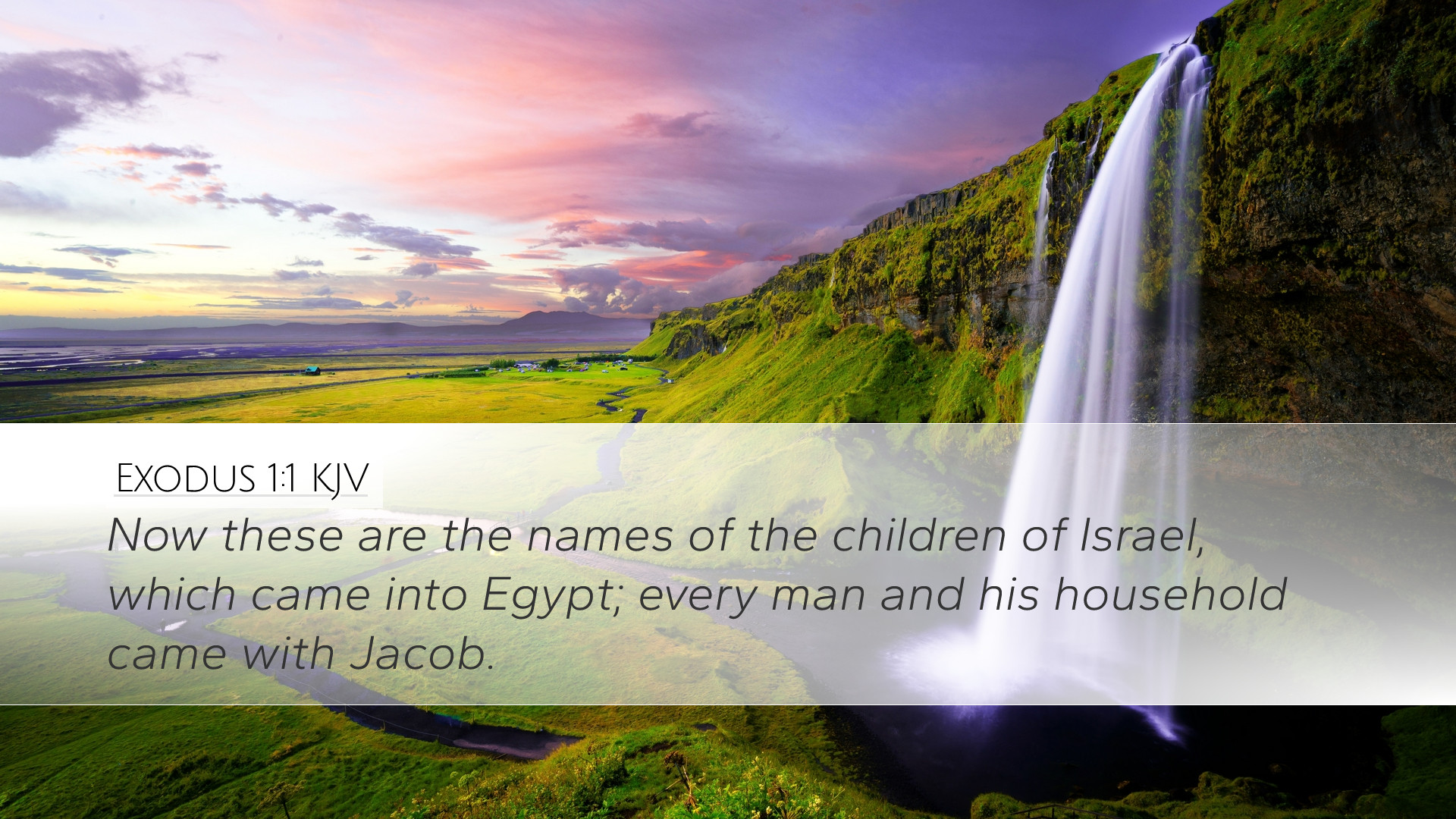Commentary on Exodus 1:1
Bible Verse: "Now these are the names of the children of Israel, which came into Egypt; every man and his household came with Jacob."
Introduction
The opening verse of Exodus serves as a critical bridge between Genesis and the ensuing narrative of deliverance. As we explore Exodus 1:1, we encounter significant themes such as identity, legacy, and divine providence. The insights from public domain commentaries highlight the verse's theological and historical dimensions, laying a firm foundation for understanding the entire Exodus narrative.
Historical Context
According to Matthew Henry, this verse situates the reader within the broader historical context of the Israelites' sojourn in Egypt. The mention of Jacob emphasizes the familial and tribal unity of the Israelites. They are not merely a collection of individuals but a people with a shared ancestry and covenantal heritage.
- Familial Connections: The specific reference to Jacob and his household reflects the importance of family lineage in ancient Near Eastern culture.
- Egypt as a Place of Refuge: Initially, Egypt was a refuge for Jacob's family during the famine, showcasing God’s provision.
Theological Significance
Albert Barnes points out that the phrase "these are the names" serves a dual purpose: it recalls the covenant promises made to Jacob and signifies the faithfulness of God in preserving His people. The verse invites the reader to reflect on God's ongoing relationship with Israel. The act of naming signifies intimacy and personal connection.
- Covenantal Faithfulness: The recollection of names serves to remind the audience of God’s promises and His unchanging nature.
- Collective Identity: The verse emphasizes the collective identity of the Israelites, affirming their role as God's chosen people.
Exegesis and Key Themes
Adam Clarke expounds on the significance of the names mentioned in this verse, suggesting that each name carries weight and meaning that reflects the broader narrative of Israel’s lineage. This emphasis on naming not only highlights the particular individuals but also sets the stage for the communal experience of slavery and redemption.
- Individual and Community: Each person named contributes to the story of the community, underlining the interplay of individual stories within God's larger narrative.
- Transition from Prosperity to Suffering: The acknowledgment of the patriarch's household foreshadows the Israelites' transition from a favored status in Egypt to eventual oppression.
Literary Structure
In analyzing the literary structure, Henry notes that the specificity of names serves as a literary device that transitions the reader from the end of Genesis into the events of Exodus. This structural choice prepares the audience to understand the severity of what follows, contrasting their initial status with the trials ahead.
- Connection to Genesis: This verse functions as a conclusion to the narrative arc established in Genesis, where the promises made to the patriarchs begin to be fulfilled.
- Foreshadowing: The passage foreshadows the unfolding drama of God’s deliverance, with the Israelite's situation taking a critical turn.
Application for Today’s Faith Community
For pastors, students, and theologians, Exodus 1:1 offers vital lessons regarding community identity and divine faithfulness. The verse invites reflection on how individual and communal identities are shaped by our understanding of God's promises.
- Building Community: The example of the Israelites demonstrates the importance of fostering community bonds that are rooted in shared faith and heritage.
- God’s Unchanging Promises: The assurance of God’s faithfulness serves as a source of comfort and hope for believers facing trials.
Conclusion
Exodus 1:1 encapsulates the biblical themes of identity, community, and divine providence. Drawing from the insights of noted commentators—Matthew Henry, Albert Barnes, and Adam Clarke—we glean a rich understanding of this pivotal moment that lays the groundwork for the deliverance narrative that unfolds in the chapters that follow. As we reflect on this verse, may we be encouraged to affirm our own identity in Christ and the community of believers, trusting in God’s faithfulness to fulfill His promises.


